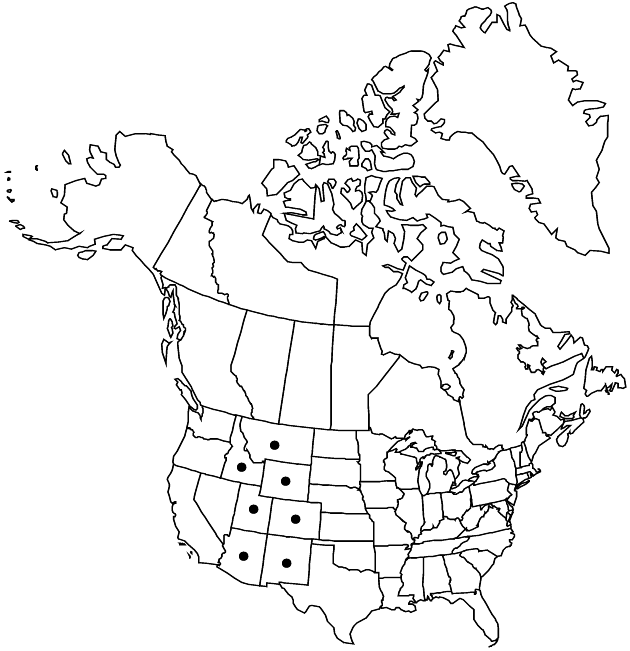Difference between revisions of "Herrickia glauca var. glauca"
Endemic
Synonyms: Aster glaucodes var. formosus Eucephalus formosus
Treatment appears in FNA Volume 20. Treatment on page 363.
imported>Volume Importer |
imported>Volume Importer |
||
| Line 53: | Line 53: | ||
|publication year= | |publication year= | ||
|special status=Endemic | |special status=Endemic | ||
| − | |source xml=https:// | + | |source xml=https://bitbucket.org/aafc-mbb/fna-data-curation/src/2e0870ddd59836b60bcf96646a41e87ea5a5943a/coarse_grained_fna_xml/V19-20-21/V20_843.xml |
|tribe=Asteraceae tribe Astereae | |tribe=Asteraceae tribe Astereae | ||
|genus=Herrickia | |genus=Herrickia | ||
Latest revision as of 20:06, 5 November 2020
Plants 20–70 cm, eglandular. Stems 1–7+, glabrous proximally, sometimes thinly scabridulous distally. Leaf blades oblong or elliptic-oblong to lanceolate (sometimes narrowly), 40–120 × 5–25 mm, faces glabrous. Heads 2–116+. Peduncles glabrous or sometimes thinly scabridulous or villosulous; bracts 0–2, foliaceous, margins villoso-ciliate or glabrous. Involucres campanulate, 6–9 mm. Phyllaries 15–35, glabrous. Ray florets (8–)10–15(–19); laminae 8–18 × 0.7–1.3 mm. Disc florets 12–32; corollas 6.8–7.5 mm, lobes 0.7–1.3 mm. 2n = 18.
Phenology: Flowering summer–fall.
Habitat: Open, rocky slopes, often on calcareous substrates, saline seeps at lower elevations, in sagebrush, pinyon-juniper, Douglas fir, lodgepole pine, and hanging gardens communities
Elevation: 800–3700 m
Distribution

Ariz., Colo., Idaho, Mont., N.Mex., Utah, Wyo.
Discussion
Selected References
None.
Lower Taxa
None.
... more about "Herrickia glauca var. glauca"